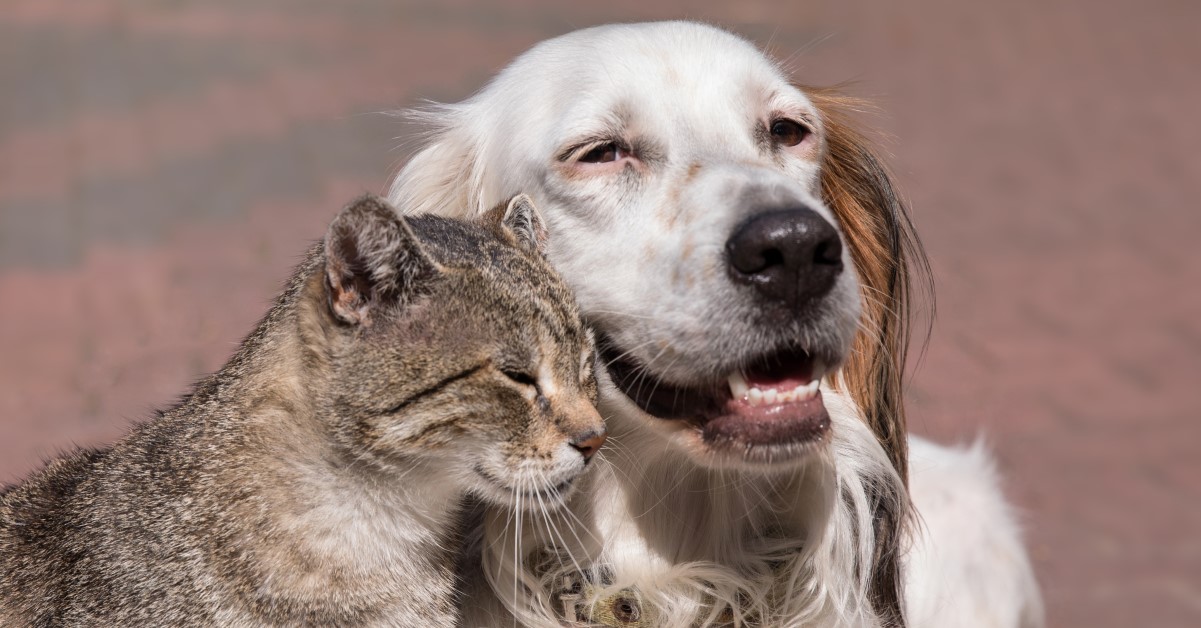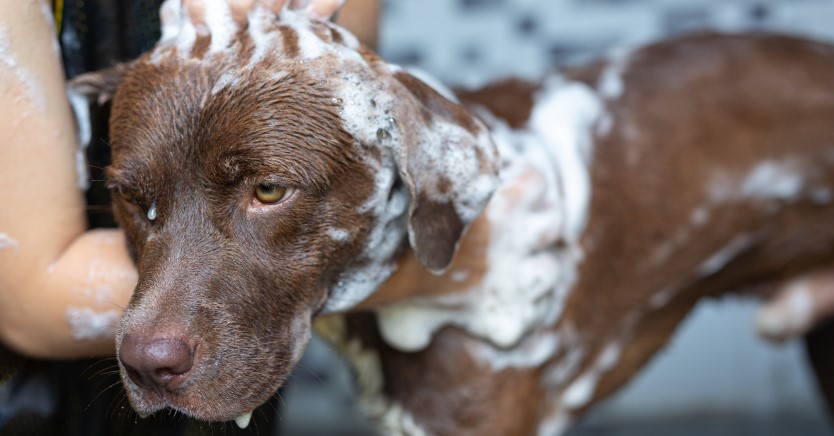Special Needs of Senior Dogs and Cats
Dogs and cats entering their “senior years'' may require special care and attention. Learn valuable tips for meeting your pets’ age-related needs and health issues.

It seems like just yesterday that you became the proud owner of a new puppy or kitten -- only to have your veterinarian tell you that your furry friend is now a senior citizen. Just as you had to help your dog or cat through the transition from babyhood to adulthood, you must now accommodate the special health and wellness needs your pets face in old age. Let's take a closer look at common health issues that can threaten older pets, along with some helpful tips on prevention and treatment.
Understanding Age-Related Risks, Diseases, and Disorders for Dogs and Cats
Dogs, cats, and people all share one common characteristic: they all grow more vulnerable to health problems with age. Geriatric animals face elevated risks for the following conditions:
- Internal organ failure - Dogs and cats can develop heart, liver, or kidney failure with advancing age. Kidney failure is especially common in older cats.
- Cancer - Tumors may appear in older dogs and cats. While most prove benign, some can turn out to be cancerous.
- Osteoarthritis - Years of wear and tear can cause your pet's joints to lose their protective layer of cartilage, resulting in the pain and stiffness of osteoarthritis.
- Periodontal disease - Periodontal disease grows increasingly common in cats and dogs over time. This problem can cause dental pain and tooth loss.
- Sensory and cognitive issues - Senior cats and dogs can struggle with cataracts, glaucoma, deafness, and/or dementia.
- Obesity - A sedentary lifestyle due to joint problems or metabolic slowdowns can encourage obesity, which in turn increases risks for cardiovascular problems, kidney or liver failure, and cancer.
Give Your Senior Pet the Right Food and Exercise
Because senior cats and dogs tend to burn fewer calories than they did as younger adults, you'll want to feed your pet a correspondingly low-calorie diet. Your veterinarian can recommend senior pet foods that contain the right mix of nutrients. Feed your old pal two to five small portions a day to help control calorie consumption.
Exercising your pet may seem like an uphill battle in the face of reduced energy and mobility challenges. However, gentle exercise helps keep your pet trim and healthy while actually helping joints work better. Dogs who find walking painful may benefit from exercising in a pool, with the water supporting some of their weight. Don't forget to exercise your pet's mind with regular brain-teasing games, toys, and puzzles.
Household Adjustments to Help Your Senior Dog or Cat
A senior cat or dog dealing with age-related changes may find that familiar household surroundings pose unfamiliar obstacles. You can make things easier with some easy ergonomic adjustments to the environment.
If your pet suffers from incontinence, try moving the litter box closer to his or her bed or placing an absorbent pad beneath it. You can even purchase diapers made especially for incontinent dogs and cats. If your dog or cat is unsteady on his or her feet, place non-slip rugs or runners on the floors. If your pet is experiencing vision problems, make sure the rugs or runners sport bright colors.
Geriatric animals who develop dementia may forget how to navigate at home and may even wander into trouble. If your dog or cat has developed cognitive decline, consider installing baby gates or other barriers to confine it to safe areas.
Schedule Senior Pet Wellness Exams
You may not be able to tell when your senior dog or cat has developed an insidious, dangerous age-related ailment. That's why senior pet wellness exams matter so much. Instead of the usual annual wellness exam recommended for most adult dogs and cats, senior wellness exams involve two visits per year to help catch any problems as quickly as possible.
In many respects, a senior pet wellness exam covers the same ground as a typical annual checkup. Your veterinarian will check your pet's vital signs, outward appearance, stance, gait, demeanor, eyes, and ears for any obvious issues. Blood, urine, and fecal samples can reveal internal diseases or disorders. A quick check of your pet's weight can determine whether he or she is developing a case of geriatric obesity.
Additional steps in a senior pet wellness exam may cater specifically to age-related concerns. Your vet may focus more closely on potential signs of vision loss, hearing loss, dementia, chronic pain, and balance or mobility problems. Many senior dogs and cats can benefit from medication to manage their blood pressure, chronic pain, kidney disease, or heart trouble.
The senior pet wellness exam also gives you a prime opportunity to raise concerns, ask questions, and seek advice. By taking full advantage of these learning moments, you can become a more skilled and supportive caregiver for your senior dog or cat.
Your Old Friend Deserves the Best
When you think of all the wonderful times your dog or cat has shared with you, you naturally want to return the favor by giving your special friend some happy, healthy "golden years." Employ the suggestions noted above, starting with the scheduling of a senior pet wellness exam. If the situation were reversed, your old friend would surely do the same for you!
Ready to start saving money on pet wellness care?
Then take a look at Mint Wellness, the pet wellness plan that provides fast reimbursement on routine pet care. Save on vaccinations, wellness exams, preventatives, dental, and more!
Learn More


